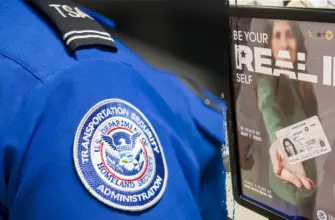The early release of Oscar Eduardo Ortega-Anguiano, a man previously deported who was convicted of manslaughter in the deaths of two teenagers, has sparked considerable controversy in California. Orange County District Attorney Todd Spitzer asserts that no “plea deal” was involved in the case.
“A convicted felon, twice removed from this country, is being released after serving only a small portion of his sentence for the tragic loss of two young lives because California’s leadership refuses to hold criminals accountable,” Spitzer stated Wednesday in a public announcement. “This wasn’t a negotiated plea; it was a sentencing handed down by a judge under California law, despite our office’s strong objection and attempts to secure the maximum penalty.”
The incident occurred in November 2021 when Ortega-Anguiano, while driving drunk, high, and at nearly 100 mph on the 405 freeway in Orange County, crashed into a vehicle carrying 19-year-olds Anya Varfolomeev and Nicholay Osokin. Both were killed instantly in the fiery crash. He was subsequently convicted of two counts of gross vehicular manslaughter while intoxicated in spring 2022.
The families of Varfolomeev and Osokin received notification on Easter Sunday that Ortega-Anguiano would be released from prison early, more than six years before his full ten-year sentence was to expire.
Following reporting by Fox News, California Governor Gavin Newsom’s office indicated a shift in policy, committing to cooperate with an Immigration and Customs Enforcement (ICE) detainer and transferring Ortega-Anguiano into federal custody. The Department of Justice has since announced the filing of federal charges against him, with former border czar Tom Homan affirming his agency’s commitment to maintaining his detention.
Newsom’s office defended its actions by stating that district attorneys have input on charging decisions and claiming that the Orange County District Attorney’s office had initially reduced certain charges. However, they acknowledged the state’s credit system – encompassing good time, education programs, and other incentives – contributed to the accelerated release date.
“For safety and security reasons, CDCR cannot provide information on an incarcerated person’s release date or location in advance of their release. Incarcerated persons may earn credits for participating in rehabilitative programming, which may move their parole dates to an earlier date,”
the California Department of Corrections and Rehabilitation previously explained.
U.S. Attorney for the Central District of California, Bill Essayli, emphasized a renewed commitment to enforcing immigration laws. “This is what happens when you have an open border policy,” he said on “America’s Newsroom.” “But those days are over. Under this administration, our borders are closed.”
Essayli added, “I’ve made it a top priority in my office…to enforce our immigration laws. So this defendant, he’s not going to get free. He’s not going to be deported. He’s coming to my jurisdiction, and we’re going to prosecute him. And once he’s convicted, he’s going to spend many years in federal prison, and then he’ll be deported again.”








